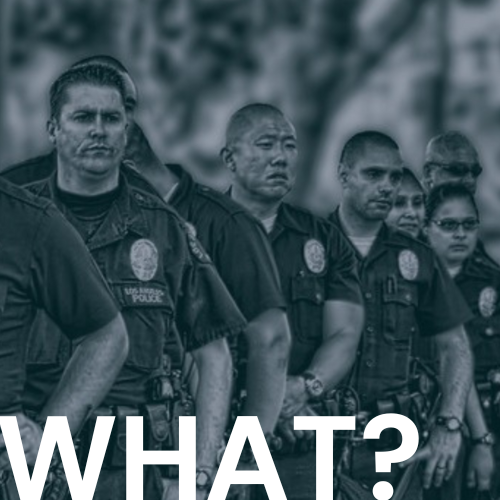The US Supreme Court decision in Brady v. Maryland [373 U.S. 83 (1963)], and subsequent rulings [Giglio, Jencks, et al] have made it a duty of all Law Enforcement Organizations [LEOrgs] to:
- Provide to the Prosecution any exculpatory material [disclosure] that would have a reasonable possibility of altering the results in a trial, or could reasonably mitigate the sentencing of a defendant; and,
- Any material relevant to the credibility of government witnesses, including, but not limited to, law enforcement officers.
The US Congress later passed the Freedom of Information Act [FOIA; 1967] making these Brady Disclosure(s) part of the public domain. The Brady List is the comprehensive way of maintaining all of the disclosures in a standardized manner.
Affirmative duty to report - the LEOrg shall exercise due diligence to ensure that any material of possible Brady relevance is made available to the Prosecutor.
- This platform empowers LEOrgs to proactively disclose all possible material in advance, and retroactively, in an accurate, complete, and continuous manner.
Obligation attaches at indictment - while the Defense is not required to request Brady disclosure, LEOrgs must convey to the Prosecutor all such material as soon as reasonably possible. This requirement extends from indictment through trial and includes sentencing.
- This platform empowers LEOrgs to proactively disclose all possible material; and, continues disclosure indefinitely for the purposes of conviction review unit(s) and cases that would otherwise be included in an ongoing investigation.
Obligation to disclose is upon the Prosecutor - the obligation is upon the Prosecutor to disclose all possible Brady material as provided by the LEOrg(s) to the Defense.
- This platform coordinates the Brady List(s) of multiple LEOrgs, and included disclosure information, for large numbers of staff, over vast geographic areas, and includes and infinite time line.
Impeachment = Exculpatory - Suppression of evidence favorable to an accused violates Due Process when the evidence is material either to guilt or punishment. For Brady disclosure purposes, there is no distinction between impeachment material and exculpatory evidence.
- This platform facilitates the timely [proactive and retroactive] communication of disclosures as required under Brady.
Complaint ≠ Brady Offense - Allegations that are unsubstantiated, not credible, or have resulted in exoneration are not considered to be Brady 'offenses', but they are considered Brady material.
- This platform does not include unsubstantiated claims as offenses; and, provides for removal of information resulting in exoneration.
Examples of Brady material that are subject to disclosure requirements include, but not limited to, the following:
- Information that would directly negate the defendant’s guilt concerning any count in an indictment;
- Information that would cast doubt on the admissibility of evidence that the government plans to offer that could be subject to a Motion to Suppress or Exclude;
- Any criminal record or pending criminal case against any witness whom the prosecution anticipates calling;
- The failure of any proposed witness to make a positive identification of a defendant;
- Information that casts doubt on the credibility or accuracy of a witness or evidence;
- An inconsistent statement made orally or in writing by any proposed witness;
- Statements made orally or in writing by any person that are inconsistent with any statement of a proposed government witness regarding the alleged criminal conduct of the defendant;
- Information regarding any mental or physical impairment of any governmental witness that would cast doubt on his or her ability to testify accurately and truthfully at trial;
- Information that tends to diminish the degree of the defendant’s culpability or the defendant’s offense level under state or federal sentencing guidelines;
- A finding of misconduct by a Board of Rights or Civil Service Commission that reflects on the witness’s truthfulness, bias, or moral turpitude. This includes employees under suspension;
- Evidence that a proposed witness has a racial, religious, or personal bias against a defendant individually or as a member of a group; and,
- An officer’s excessive use of force, untruthfulness, dishonesty, bias, or misconduct in conjunction with his or her service as a law enforcement officer.
Officer personnel files that are related to matters stated above are to be provided to the Prosecution and Defense as part of all Brady disclosures.
- Ensure enforcement discretion. The Brady List does not apply Machine Learning [ML], Artificial Intelligence [AI], or any other coded mechanism.
- Empower prosecutorial disclosure. This Brady List as a platform automates the compilation of data across entire jurisdictions for prosecutors.
- Enable judicial oversight. This Brady List platform is the first of its kind to serve the judiciary as a method to ensure delivery of Brady Material Disclosures.
- Build trust in the community through transparency. This Brady List is now, and always will be, open to the public.
- Demonstrate accountability. The Brady List encourages law enforcement, prosecutors, and the judiciary to demonstrate their entire workflow from complaint intake through categorization, investigation, and conclusion.
In order to provide this service to 20,000+ Organizations, POST Departments, and Prosecutors nationwide. We have standardized the input, date and time stamped the output, incorporated an epistemology of Brady Offenses, Public Complaints, and Use-of-Force Reports.
User accounts are available to all Organizations [Law Enforcement], Prosecutors, and state POST Departments.
$150/month
This is available for LEOrg, Prosecutor, and POST Department that sign up on an individual basis.
$75/month
This is available for Counties that commit to every single LEOrg and Prosecutor's Office.
$35/month
This is available for States that commit to every single LEOrg, Prosecutor's Office, and POST Department.
All plans are invoiced annually and paid in advance. Civilian Oversight Committees [COC] are offered accounts at a reduced cost. Citizens and members of the Press are welcome to use this entire platform for FREE.












![Peace Officer Standards & Training [POST] Departments Peace Officer Standards & Training [POST] Departments](/sites/default/files/styles/large/public/2023-07/Brady.png?itok=xsIFvU8R)
![Organizations [Law Enforcement et al.] Organizations [Law Enforcement et al.]](/sites/default/files/styles/large/public/2023-07/Brady%20%282%29.png?itok=H7Pj15F8)

